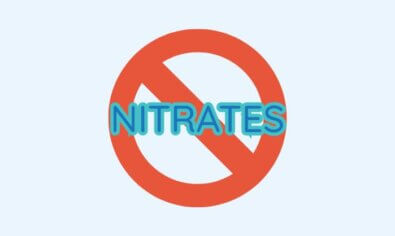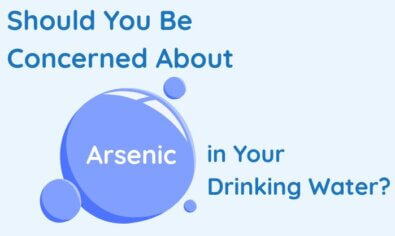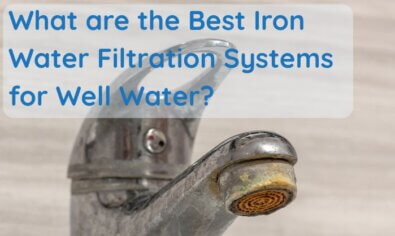What Do I Need to Know About Water Filters?
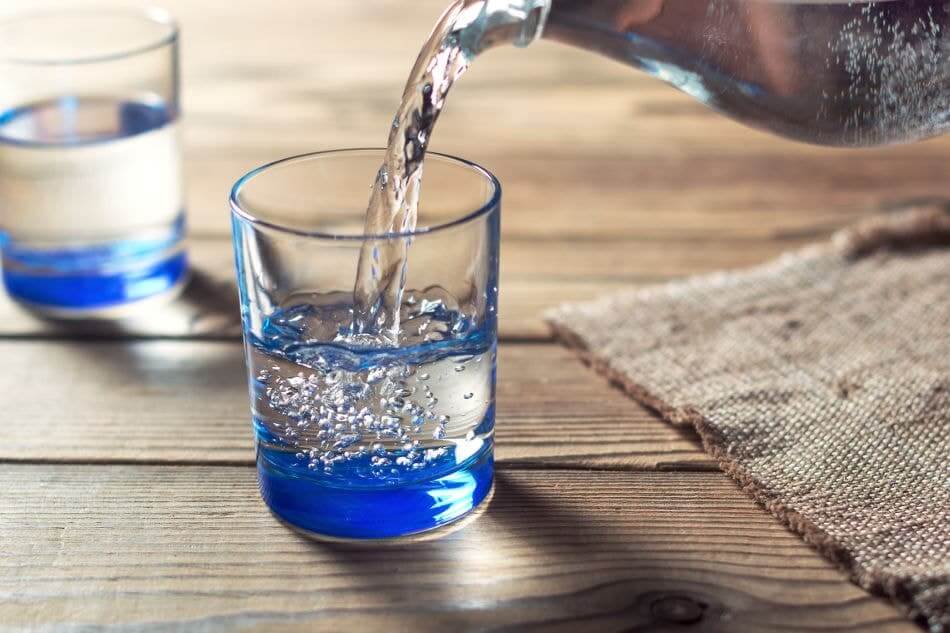
Explore Our Comprehensive Guide to Home and Commercial Water Filters
We’ve all heard the factoid that people are mostly composed of water. This fact is often shared to drive home the point that water is one of the most essential keys to human health and survival. It also implies a question—are you doing enough to ensure healthy water intake? When it comes to answering that question, one of the first and foremost things to consider is what types of water filters you run your water through before using it.
Water filters vary a lot, though. There are many different contaminants that might lurk in your water, different filtration methods for removing them, different manufacturers for each filtration method, and different models and designs from each manufacturer. Marketing claims and price points vary widely as well, so it can be hard to make sense of it all and feel confident that you’re spending your money wisely.
To keep you informed and help you navigate this market, here’s a handy guide the experts at Angel Water have put together about water filters, including why you need them, what kinds are out there, and how to measure quality.
Why Should I Filter My Water?
Why does water need to be filtered in the first place? What happens if you use unfiltered water? Of course, the symptoms you’d experience are different depending on what’s in the water. More generally though, your own body has to do the work of filtering contaminants out of the water you drink—you can either buy a filter, or be a filter.
Can’t My Liver Handle It?
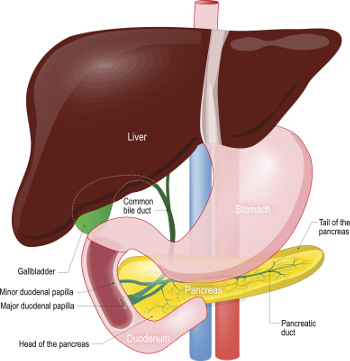
The liver is your primary organ for detoxifying your body. It works by filtering contaminants out of your bloodstream, breaking these toxins down into substances that are easier to bind to and manage, and then transporting them elsewhere to be removed.
However, there’s only so much your liver can handle. Sometimes it encounters toxins it can’t break down, it’s been worn out by chronic exposure, there are more toxins than it can handle, or it’s busy doing something else like creating glucose to raise blood sugar in a stressful event.
When that happens, the liver stores the excess toxins in your body fat reserves where they can’t do as much damage. Your body then resists you shedding that fat to prevent toxins from overwhelming it. So, drinking water without water filters can result in toxins gradually building up in hard-to-get-rid-of fat reserves. This is why chronic everyday exposure to contaminants like lead and other heavy metals has an increasing cumulative effect on your health over the years.
See this post from Angel Water for a closer look at how your body tries to filter contaminants when you don’t have a filtration system.
Are Businesses Required to Use Water Filters?
Did you know that all food service establishments in Illinois are legally required to serve water that’s been filtered? This is just one of many federal, state, and local water quality regulations that your business may have to deal with, including the Clean Water Act, the Safe Drinking Water Act.
If you’re not using the right water filters, your business could be sitting in a dangerous legal grey area and you don’t even know it. Don’t risk someone getting sick and starting legal trouble—bring in a professional like one of the water experts at Angel Water and have your worksite evaluated for meeting legal standards today. You might need new water filters to stay up to date.
What Types of Water Filters Are Out There?
Water filter systems are divided into whole-house filters and point-of-use filters. Whole-house water filters provide safe, clean water at every fixture throughout your home. Point-of-use water filters clean the water just as it comes out of one fixture, such as a kitchen sink. Both categories include systems that can include water filters, water softeners, and other components.
Systems are also divided into ones designed for municipal water, and ones designed for well water. Municipal water has already gone through water treatment processes like chlorination, whereas well water is untouched and exposed to different potential contaminants. As a result, the water filtration system best suited to you will differ depending on your water source.
What Does Each Filtration Method Remove?
Finally, there are the different filtration methods that water filters use. Let’s go over how each of these works and what they remove:
Is Your Water Clean? Get a Free Water Test Today!
Unsure if your water needs filtration? Get a free water test to check your water quality and see if a filtration system can help provide clean, safe water for your home.

- Carbon Filters– These are the filters you’re probably most familiar with, commonly found in water pitchers, water bottles, etc. Activated carbon will chemically bond with some pollutants as it passes through.
- What It Removes– Many only remove chlorine. Others can remove mercury, lead, asbestos, and volatile organic compounds (VOCs).
- What It Leaves Behind– Many common inorganic contaminants like nitrates, arsenic, fluoride, perchlorate, and chromium.
- Ceramic Filters– This type of filter is made of trillions of fossilized single-cell algae known as diatoms. It filters water by having it pass through its many microscopic pores.
- What It Removes– Solid wastes like sediment.
- What It Leaves Behind– Chemical pollutants like heavy metals, VOCs, etc.
- Deionization Filters– These filters use ion exchange to take advantage of the fact that dissolved inorganics are positively or negative charged. It uses a bed of electrically charged resin to attract those ions and exchange them with hydrogen and hydroxide, which combine to form H2O.
- What It Removes– Dissolved inorganics such as mineral salts.
- What It Leaves Behind– Microorganisms like E. coli bacteria, as well as non-ionic contaminants like VOCs and trihalomethanes.
- Distillation– This process involves heating water until it vaporizes, then condensing the steam back into water.
- What It Removes– Minerals, chemicals, and microorganisms with higher boiling points than water.
- What It Leaves Behind– Contaminants with lower boiling points than water like chlorine, trihalomethanes, and VOCs.
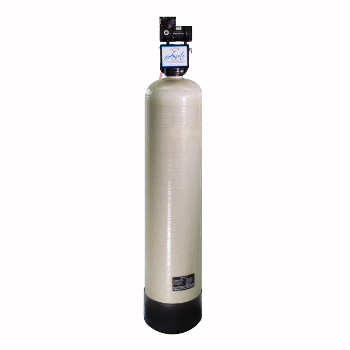
Ozone water filters like this Puraclear AO3 are great for eliminating iron bacteria and hydrogen sulfide.
- UV Filters– These filters use UV rays to disrupt the DNA of microorganisms, making bacteria unable to reproduce and ultimately killing them.
- What It Removes– Microorganisms like E. coli, giardia, and other bacteria.
- What It Leaves Behind– Inorganic contaminants including chemicals and minerals.
- Ozonation– Ozone filters infuse water with highly reactive ozone molecules, which oxidize biological components and bond with some dissolved minerals.
- What It Removes– Iron, manganese, and 99% of microorganisms including cryptosporidium and giardia.
- What It Leaves Behind– Chemical contaminants such as trihalomethanes, VOCs, and others.
- Reverse Osmosis– An RO system forces water through a semipermeable membrane, leaving behind all solutes that can’t pass through.
- What It Removes– The widest spectrum of contaminants including calcium, asbestos, dissolved salts, microorganisms, and metals like lead, mercury, and iron.
- What It Leaves Behind– Some chemical pollutants including chlorine, trihalomethanes, and VOCs.
Based on the above information, the systems which we most often recommend for removing the most complete range of contaminants are multi-step systems with reverse osmosis and activated carbon components. This will ensure the absolute highest-quality drinking water.
For more about how reverse osmosis compares to other filtration methods, see our breakdown of that topic here.
How Do I Choose a Water Filter?
So, how do you choose from all the water filters on the market? Your process should include two steps: testing your water to know what contaminants it contains, and inspecting product certifications.
Why Should I Test My Water First?
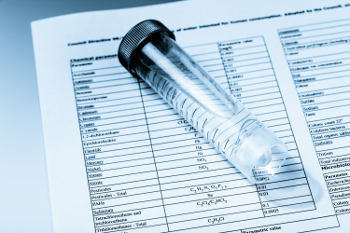
As we’ve seen above, water filters all remove different ranges of contaminants. There aren’t really any one-size-fits-all solutions, and your water filter has to be suited to the water issues you’re actually facing. That’s why before you start shopping around, you should get some professional water testing done.
This will give you insights into your water hardness, mineral content, and the contaminants lurking in your water. With this information, you’ll know what you need out of your water treatment system and have a basis for comparing different water filters.
Angel Water has been performing convenient on-site testing for many years—if you’re wondering what’s in your water, give us a call!
Why Do Certifications Matter?
Manufacturers make a lot of promises in their marketing copy and product claims, but certifications are the only way for you to know how those water filters will really perform.
For example, if a manufacturer says their water filters are guaranteed to “take out” lead, does that mean they eliminate lead or just reduce it? Additionally, how many gallons of water can their system filter before needing replacement filters? Don’t fall for a system that seems like a good deal but then frequently requires expensive filter changes to stay effective.
The best way to know exactly what a filter will do is to look for NSF certifications. NSF International, formerly the National Sanitation Foundation, is an internationally respected independent product certification organization. They set industry standards and then certify product claims through extensive and rigorous testing.
When shopping around for water filters, look for seals indicating certifications from NSF International and the Water Quality Association (WQA). These indicate that the manufacturer has invested time and money into proving the quality and performance of their product. Pay attention, though—be sure to check what exactly it’s certified for and for how many gallons.
For a more detailed guide to choosing the right drinking water system, see this post from Angel Water.
Do Water Filters Need Maintenance?
Your water filter’s filter media should only need to be changed a few times a year, depending on design and usage. It can be easy to forget about this for a prolonged period—out of sight, out of mind. That’s why you should schedule regular visits from a professional technician to perform filter changes as an inspection and any other maintenance your system needs.
The experts at Angel Water have been installing and maintaining NSF-certified water filters in Barrington, IL and the Chicago area for decades, and have the hands-on experience to keep up your system’s performance. Whether you’re seeking water testing services, guidance choosing your system, or service visits to keep things running smoothly, give us a call at (847) 382-7800 today and we’ll do our best to lead you to cleaner, healthier, more pleasant water!
Find the Best Water Filter – Schedule an Appointment Now!
Ensure your home has clean, safe water with the right filtration system. Schedule an appointment with our specialists today to discover the best filter for your household’s needs.

